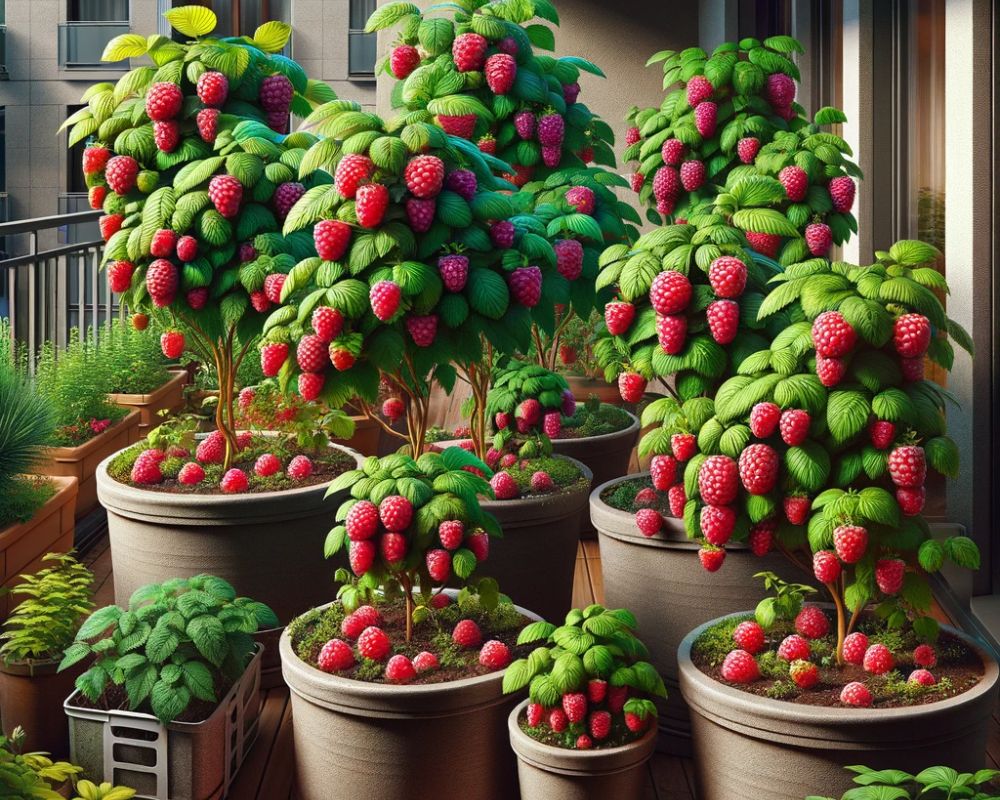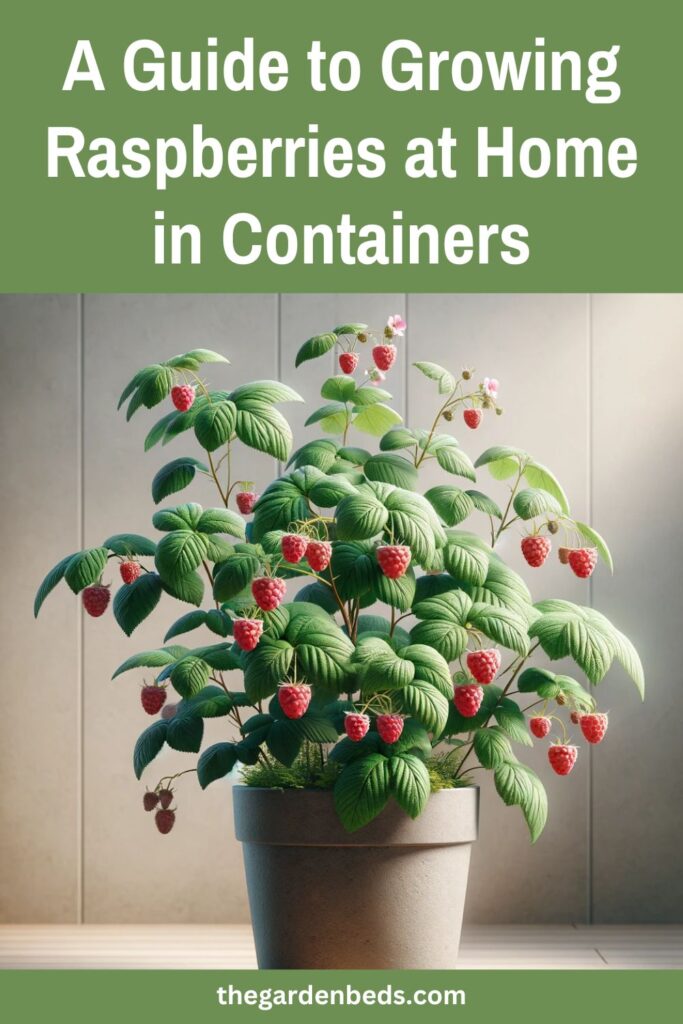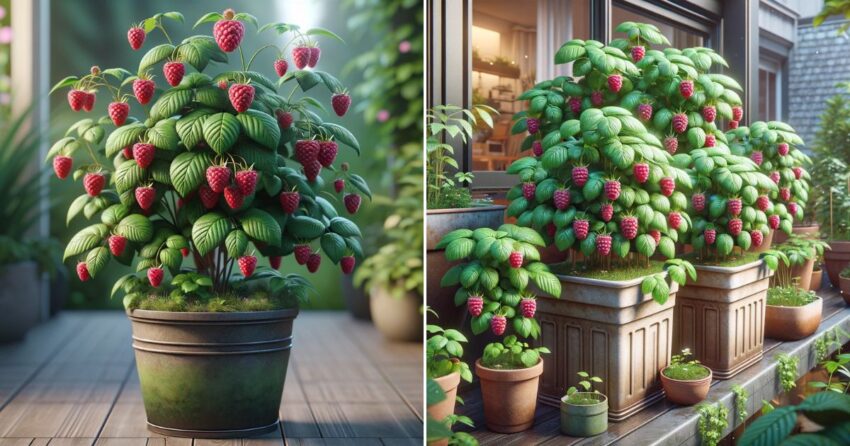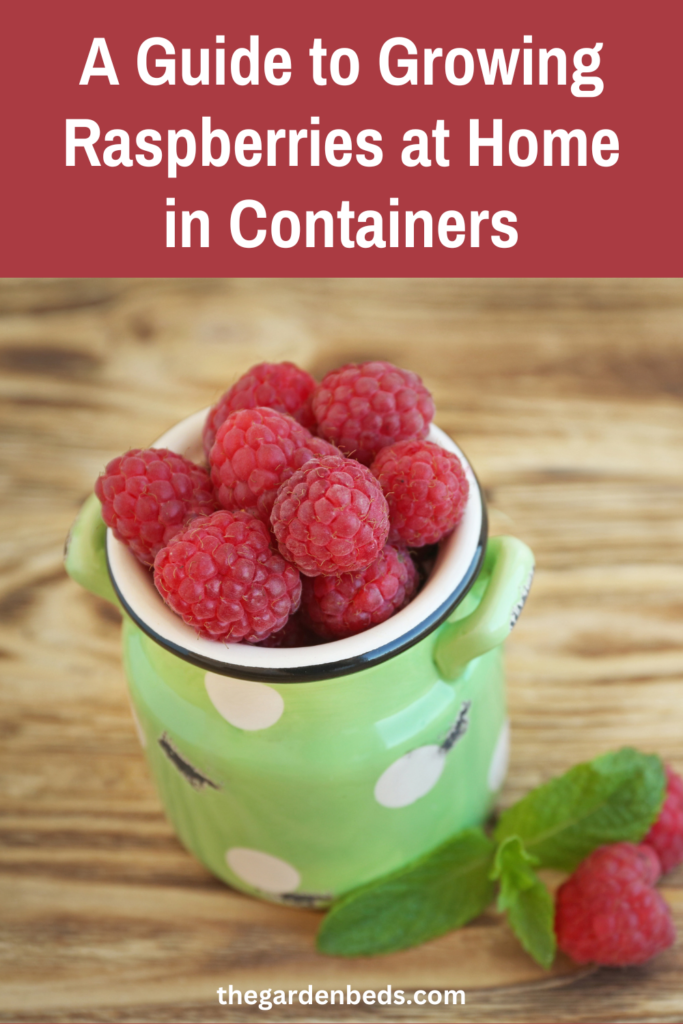Raspberries are delicious, juicy, and packed with antioxidants, making them a favorite among gardeners and berry enthusiasts. While many people believe that growing raspberries requires a large garden or ample outdoor space, the truth is that you can successfully cultivate these delectable berries right at home, even if you have limited space. In this comprehensive guide, we will explore the ins and outs of growing raspberries in containers, allowing you to enjoy a bountiful harvest of these sweet treats on your patio, balcony, or small backyard.
Selecting the Right Container
The first step in growing raspberries in containers is choosing the appropriate container. Here are some key factors to consider:
Container Size: Raspberries have shallow root systems, but they do require space to grow and spread. Opt for a container that is at least 18 inches in diameter and 12 inches deep to provide enough room for the roots to develop.
Material: Containers can be made of various materials, including plastic, clay, wood, or fabric. Plastic containers are lightweight and easy to move, while clay pots offer better breathability for the roots. Choose a container that suits your space and aesthetic preferences.
Drainage: Adequate drainage is crucial for raspberries. Ensure that your container has drainage holes to prevent waterlogged soil, which can lead to root rot.

Choosing Raspberry Varieties
When it comes to raspberries, there are two main types: summer-bearing and everbearing. Consider the following when selecting the right variety for your container garden:
Summer-Bearing Raspberries: These varieties produce a single large crop in the summer. They are ideal for gardeners who want a concentrated harvest.
Everbearing Raspberries: Everbearing varieties produce two crops each year, one in summer and another in the fall. This choice can provide a longer harvesting season.
Compact Varieties: Some raspberry varieties are specifically bred for container gardening. Look for compact varieties, such as ‘Raspberry Shortcake’ or ‘Balcony,’ which are well-suited for limited space.
Soil and Planting
Proper soil and planting techniques are essential for the success of your raspberry container garden:
Soil Mix: Use a high-quality potting mix enriched with organic matter. Raspberries prefer slightly acidic soil with a pH level between 5.5 and 6.5.
Plant Spacing: Space raspberry plants at least 24 inches apart in the container to allow for adequate air circulation and growth.
Planting Depth: Plant your raspberries at the same depth they were in their nursery containers. Ensure the crown is just above the soil surface.
Sunlight and Watering
Raspberries thrive in specific environmental conditions:
Sunlight: Raspberries require full sun to produce abundant fruit. Place your container in an area where it will receive at least 6-8 hours of sunlight daily.
Watering: Keep the soil consistently moist but not waterlogged. Water deeply and regularly, especially during dry spells. Mulching can help retain soil moisture.
Pruning and Maintenance
Pruning and maintenance are essential for healthy raspberry plants:
Pruning: Prune dead or diseased canes and remove any weak or spindly growth. Pruning should be done in late winter or early spring.
Fertilizing: Apply a balanced, slow-release fertilizer in the spring when new growth begins. Follow package instructions for the correct dosage.
Pest and Disease Management
Raspberries can be susceptible to pests and diseases. Keep an eye out for common issues and take preventive measures:
Aphids and Spider Mites: Use insecticidal soap or neem oil to control aphids and spider mites.
Fungal Diseases: To prevent fungal diseases, avoid overhead watering, provide good air circulation, and keep the area around the container clean.
Conclusion
Growing raspberries in containers is a rewarding endeavor that allows you to enjoy fresh, homegrown berries even in limited space. By selecting the right container, raspberry variety, and following proper care and maintenance practices, you can savor the sweet taste of success as your raspberry plants thrive and produce a bountiful harvest. Whether you have a small balcony or a tiny backyard, raspberries can be a delightful addition to your home garden. Happy gardening!

Read also: How to Use Epsom Salt for Brighter, Blooming Roses


